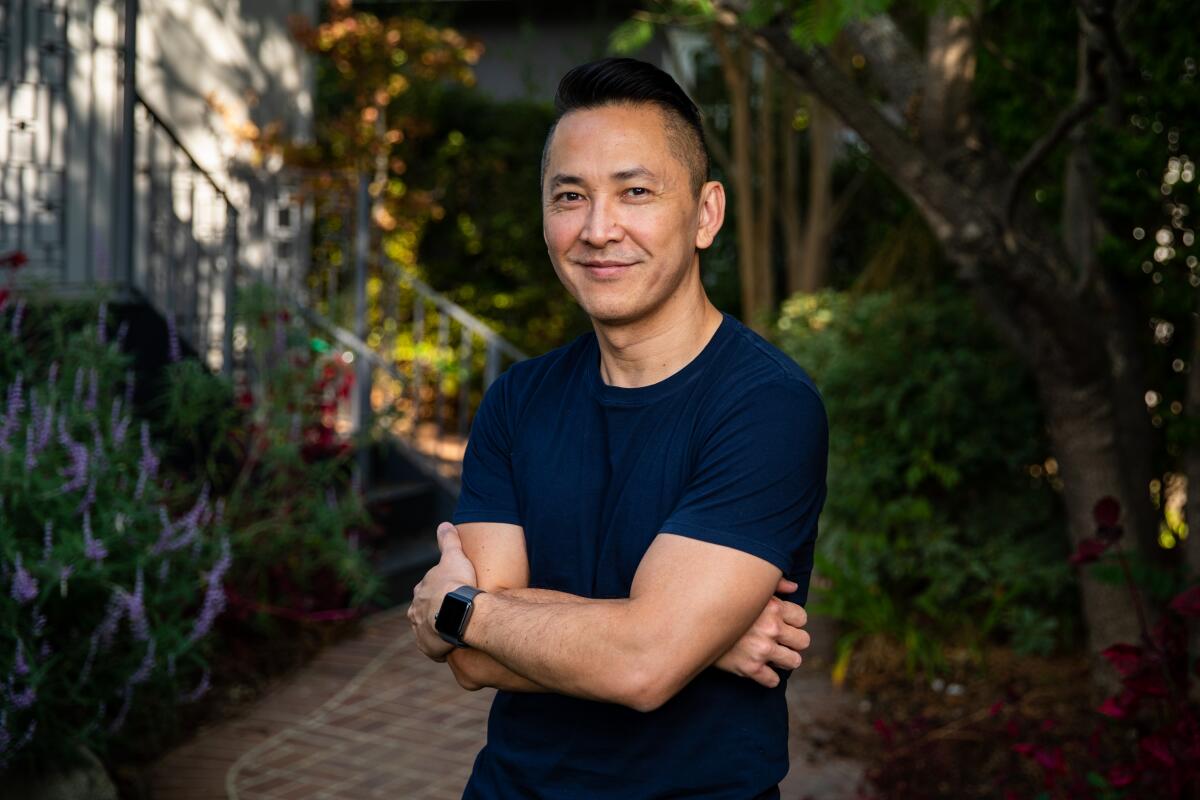Viet Thanh Nguyen on his ‘Sympathizer’ sequel and the ‘scarcity’ of voices like his

Viet Thanh Nguyen had no intention of writing a sequel to “The Sympathizer,” his Pulitzer Prize-winning novel about a French-Vietnamese undercover agent working for Communist forces during the end of the Vietnam War. But after he finished it, he realized he wasn’t done exploring “the misadventures” of his complicated protagonist.
“He’s alive at the end of the book and he’s learned some lessons, but I thought that he didn’t fully understand everything that had happened to him, or to Vietnam, or to this revolution that he’s committed to, and I wanted to continue his story both to learn what happens to him and what his thinking is,” Nguyen said on Sunday, explaining the impetus for his forthcoming book “The Committed.”
Another nice thing? It was set in Paris in 1982, which required some travel. “It also gave me the opportunity to spend more time in Paris and do some quote-unquote research there,” he said.
The schedule unveiled Thursday also features Ayad Akhtar, Marlon James and actor Henry Winkler. The online festival — 25 events marking 25 years — begins Oct. 18.
During the virtual Los Angeles Times Festival of Books on Sunday, Nguyen and his 7-year-old son, Ellison, joined Caldecott Medal winner Thi Bui and her 13-year-old son, Hien Bui-Stafford, for a reading and discussion of “Chicken of the Sea,” moderated by Sumun L. Pendakur from USC’s Race and Equity Center. The children’s book was conceived in the mind of Ellison, then 5, and illustrated by Bui and her son. In a one-on-one chat after the panel, Nguyen talked about “The Committed,” out in March; teaching and writing during the pandemic; and what’s next for him.
Asked what readers can expect from “The Sympathizer’s” main character in the sequel, Nguyen said, “More of the same... In ‘The Committed,’ he continues making bad choices in his life.” There’s plenty of “crime and violence and drugs,” but also engagement with race, colonialism and pluralism — tensions that are still roiling contemporary France in 2020.

In the course of the conversation, Nguyen expanded on “narrative plenitude” — a term he coined to discuss representation of cultures in fiction. “If you come from a so-called minority, let’s say me as an Asian American, you live in a condition of narrative scarcity: almost none of the stories are about you. So when a story about you or someone like you comes along, you put enormous weight on that story.”
Journalist Maria Hinojosa talks about her memoir “Once I Was You,” and how a childhood trauma triggered her interest in immigration reporting.
Narrative scarcity remains the reality for non-white Americans, said Nguyen, because they don’t control the economy. “If Black people and other people of color and other minorities don’t control, or don’t have control, over the means of production, they really don’t control their stories. They are subject to the whims and mercies of people more powerful from them — the producers and the owners — who can dictate what kinds of stories are told.” It’s a particularly big problem in Hollywood, he said.
But there is one medium where Nguyen sees the possibility of narrative plentitude for Asian American stories: literature. “Part of the reason why we see that versus the world of film is because it’s cheap to write,” he said. “All it takes to write is your own time and your own life.”
Nguyen plans to continue contributing to that plenitude. He’s working on a short nonfiction book that’s part memoir, part essays on race, immigration and decolonization. He’s also in the early stages of the third and final installment of what’s becoming the Sympathizer trilogy — which “will return us to the 1980s of Southern California.”
Watch the entire Festival of Books panel below, featuring Viet and Ellison Nguyen, Thi and Hien Bui-Stafford, and Pendakur.

More to Read
Sign up for our Book Club newsletter
Get the latest news, events and more from the Los Angeles Times Book Club, and help us get L.A. reading and talking.
You may occasionally receive promotional content from the Los Angeles Times.










